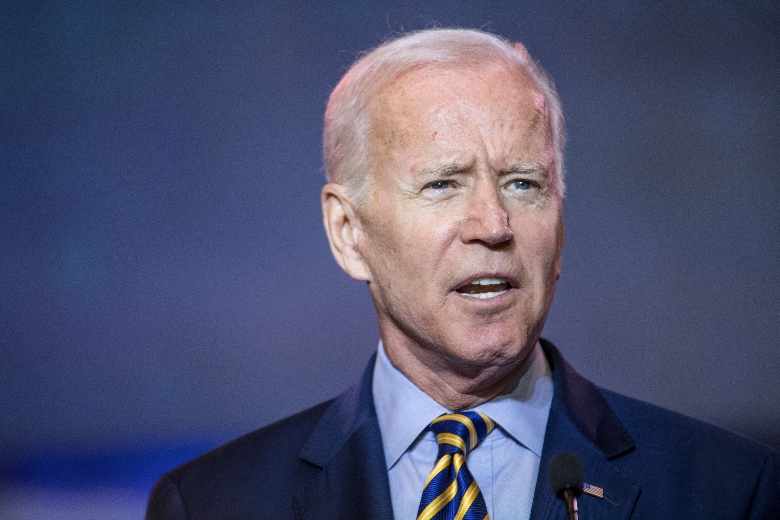Joe Biden made history on Thursday by commuting the sentences of nearly 1,500 individuals and issuing 39 pardons, marking the largest single-day act of clemency in modern U.S. history. This unprecedented move is part of the administration’s broader push for justice reform, focusing on those convicted of non-violent offenses and individuals who have successfully reintegrated into society after being on home confinement during the COVID-19 pandemic.
The White House emphasized that these actions align with the administration’s goals to advance equal justice, bolster public safety, and support rehabilitation. Officials noted, “The President has issued more sentence commutations at this point in his presidency than any of his recent predecessors at the same stage in their first terms.”
President Biden hinted that additional clemency measures are on the horizon. “I will take more steps in the weeks ahead,” he stated. “My administration will continue reviewing clemency petitions to advance equal justice under the law, promote public safety, support rehabilitation and reentry, and provide meaningful second chances.”
While the historic clemency actions have garnered widespread attention, they are overshadowed by ongoing controversy surrounding Biden’s decision to pardon his son, Hunter Biden, who faced felony gun and tax charges. On December 1, Biden’s move contradicted his earlier commitment not to intervene in his son’s legal matters, sparking bipartisan criticism and public disapproval. A poll by the Associated Press found that only 20% of Americans supported the pardon, reflecting its unpopularity across political lines.
Hunter Biden faced two federal cases this year. In June, he was convicted of three felony gun charges for providing false information on a mandatory firearm purchase form, claiming he was not using drugs. In September, he pleaded guilty to tax-related charges for failing to pay taxes on significant earnings. President Biden defended his decision, stating that his son was “singled out only because he is my son,” and argued that the legal actions aimed to “break Hunter” as a way to “break me.”
Critics have accused Biden of leveraging his presidential power for personal reasons. The fallout has intensified scrutiny of the administration, with press secretary Karine Jean-Pierre facing tough questions from reporters. When asked if the president misled the public, Jean-Pierre reiterated Biden’s commitment to truthfulness, though skepticism remains high.
The controversy reached the judiciary when the federal judge overseeing Hunter Biden’s case criticized the pardon, accusing the president of undermining the legal process. The judge dismissed claims of political bias against investigators and prosecutors but issued a sharp rebuke to Biden for his intervention.
Despite the backlash, Biden’s broader clemency actions highlight a significant policy shift. The commutations and pardons predominantly benefited those convicted of non-violent offenses, signaling a departure from more punitive approaches to criminal justice. Advocates for reform have praised these efforts as a meaningful step toward addressing systemic inequities.
The administration’s focus on rehabilitation and reentry aligns with its larger criminal justice agenda. By targeting individuals who demonstrated successful reintegration into society, the clemency measures aim to promote second chances and reduce recidivism rates. The White House underscored that these decisions were made following thorough reviews of each case, ensuring that public safety remains a priority.
However, the timing of the announcements has raised questions about political motivations. Critics argue that the clemency actions may be an attempt to deflect attention from the Hunter Biden controversy. The president’s defenders, on the other hand, assert that the clemency measures reflect long-standing commitments to justice reform rather than a calculated political maneuver.
As Biden prepares to review additional clemency petitions, the administration faces mounting pressure to address concerns about transparency and fairness. While the historic scale of Thursday’s actions underscores the president’s dedication to justice reform, the lingering controversy over Hunter Biden’s pardon continues to cast a shadow over these efforts.
Looking ahead, the Biden administration must navigate the delicate balance between advancing its policy goals and addressing public concerns about the use of executive powers. The president’s clemency decisions, though historic, serve as a reminder of the complexities and challenges inherent in wielding such authority. Whether these actions will solidify Biden’s legacy as a champion of justice reform or fuel further criticism remains to be seen.

Did he pardon the J6 prisoners????
Biden is a monster. Shame on anyone who voted for that Satanic, anti-American creep.
Biden has misused the office of the President for four years and he is topping off his administration’s achievements by pardoning criminals and covering his sins.